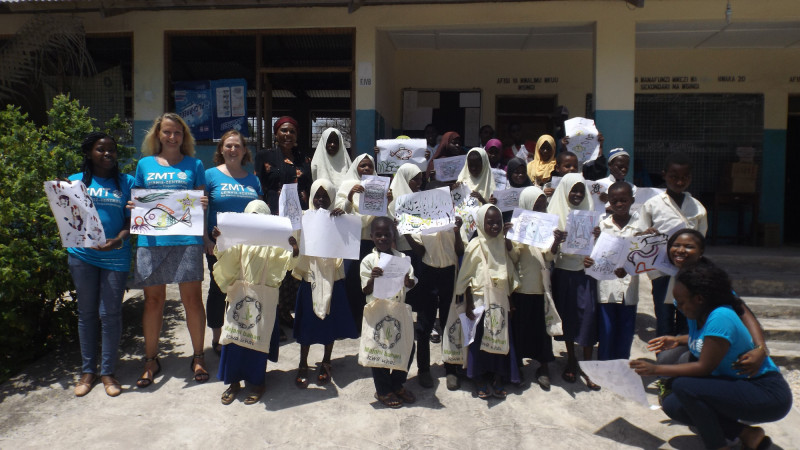Working with Development Cooperation: Our Approach
ZMT practises a strong partnership approach, conducting research projects in close cooperation and on equal terms with its partners in the Tropics. ZMT is committed to meeting the scientific and development needs of its partners. The cooperation with developing and emerging countries is based on the Bremen criteria, the ZMT Capacity Development Strategy and the ZMT Stakeholder Engagement Guide.
ZMT cooperates with development cooperation actors in a variety of ways: organising joint events, conducting granted or commissioned research, acting as a consultant. Supported activities include research, academic capacity development (curriculum development, academic training, development of research infrastructure), hosting secretariats of networks, environmental education, and political consulting through e.g. stakeholder workshops, policy briefs or other formats and products. Have a look at our non-exhaustive list of ZMT's expert knowledge.
You can read about our experiences in this field in the brochure "CONCEPTS COLLABORATIONS COMMON GROUNDS The impact of our work beyond research and academia" (2019).

Development cooperation projects at ZMT:
NeDit (GIZ/BMZ): This partnership project implemented by ZMT in cooperation with the Institute of Marine Sciences at the University of Dar es Salam (IMS) aims to support the use of new and innovative digital technologies for policy-making in marine resource management in Eastern Africa.
FIDEA (GIZ/BMZ): In FIDEA, ZMT and fisheries research institutes (TAFIRI, IIP and IMS) in Tanzania, Zanzibar and Mozambique join forces together with key stakeholders in the region to improve data collection and analysis for the artisanal fisheries to support the collection, management and use of the data in the region, and to advance the countries commitments to report on the SDG 14 progress.
WIOGEN (GIZ/BMZ): WIOGEN is a scientific networking platform with an integrative vision of social learning approaches that fosters regional ocean governance in the West Indian Ocean Region. The network comprises a transdisciplinary science network of academic, policy-related, private and civil society partner institutions over a preliminary phase of two years.
MIMAC (GIZ/BMU): The MIMAC project is aimed at placing the Marine Protected Areas (MPAs) of Bahia Portete, Bahia Honda and Bahia Hondita in a larger context of a Marine Spatial Planning program in order to enhance the regional efficiency of habitat and biodiversity protection. At the same time, management plans for these areas shall be developed, that are adapted to the needs and demands of local stakeholders and that make best use of an ecosystem approach to adaptation and management under conditions of climate change.
MEEN (EZ Bremen): The "Bremen-Durban Marine Environmental Education Network“ (MEEN) has brought comprehensive knowledge on marine conservation to youth ambassadors in workshops. These "Ocean Champs" pass on their newly acquired know-how to their communities in order to raise public awareness of the importance of marine conservation. As part of the project ZMT published the brochure "Marine Plastic Pollution“ introducing teachers from Bremen and Durban to the topic and providing an overview of teaching and learning materials that can be used for teaching.
Summer School „Marine protected areas – management challenges” in Senegal (2014, Blue Solutions)
Our Partners
Our partners include the City of Bremen (EZ Bremen), the Deutsche Gesellschaft für Internationale Zusammenarbeit (GIZ), the Federal Ministry for Economic Cooperation and Development (BMZ), Blue Solutions, the Kreditanstalt für Wiederaufbau (KfW), the German Academic Exchange Service (DAAD), and others.




